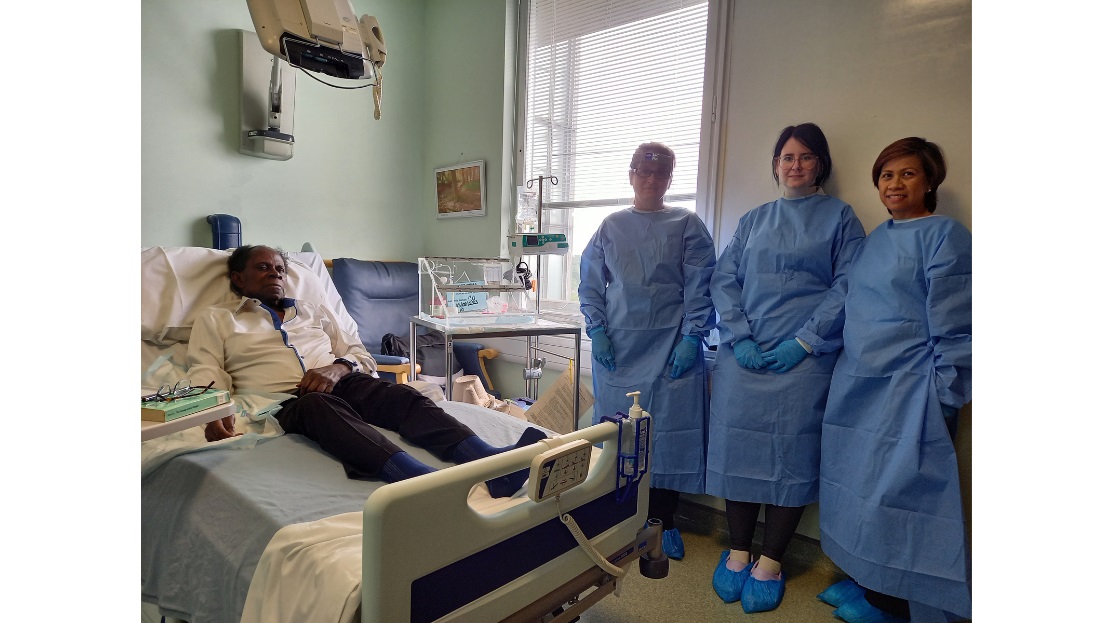
Nine patients with advanced prostate cancer at the Royal Free Hospital (RFH) are currently benefitting from a new highly targeted radiation treatment.
Described as ‘theranostic’ treatment it works by linking a radioactive particle to a molecular marker for the cancer in order to pinpoint the disease, while at the same time reducing damage to healthy cells.
While the novel treatment – Lutetium-177 PSMA – has been designed specifically for prostate cancer, very similar treatment is already being used for patients with neuroendocrine cancer at the RFH. Clinicians say the theranostic approach it is likely to be used more widely in the future for a number of other common cancers, as it is usually well tolerated, with fewer side effects compared to chemotherapy.
The treatment, given every six weeks, requires rigorous protocols to ensure staff safety as the patient becomes slightly radioactive for a short period of time. As soon as the treatment is delivered by injection into a vein in the arm the member of staff must immediately leave the lead-lined room. Patients can typically go home the same day but need to take some precautions at home for a couple of weeks while they remain radioactive. The particle is metabolised and the waste carried away in the patient’s urine.
Dr Mark Prentice, a clinical oncology consultant for the Royal Free London (RFL), said: “The prostate patients who are currently receiving theranostic treatment are as a result of an expanded access programme by the company who manufactures it. However, it is currently being considered by NICE (The National Institute for Health and Care Excellence) and we hope to be able to expand accessibility further, subject to approval. We have the clinicians and allied health professionals with the expertise in our nuclear medicine department to support our patients.
“Currently the treatment is only available to patients with advanced disease who have progressed through other lines of treatment but we are currently involved in trials that are assessing the role of Lutetium-177 PSMA much earlier in a patient’s cancer journey.”
Dr Prentice added: “At the moment the treatment is expensive but it should be possible to reduce costs over time. There are a lot of people involved, from physicists to pharmacists to consultants, technologists and nursing staff. But it is worth the effort because outcomes are good.”
Farhan Naim, director of research and development at the RFL, said: “It’s fantastic that thanks to previous clinical trials carried out at the Royal Free London, our patients now have access to this expanded access programme, giving select patient groups the opportunity to benefit from this exciting and novel treatment. This is an important addition to therapeutic options for patients with cancer.”
 Translate
Translate